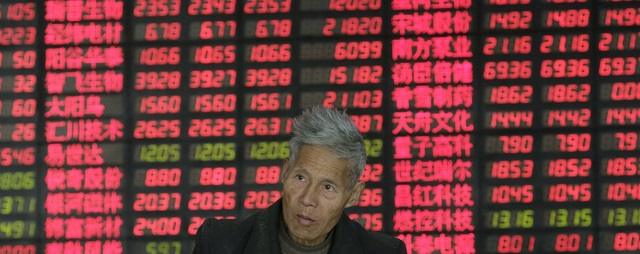Every year, the masters of the universe gather to solve Earth’s problems at the Milken Institute Global Conference in Beverly Hills, Calif.
Big name speakers this year included two of the world’s richest men, Carlos Slim and Bill Gates; elder statesmen, Tony Blair and Al Gore; power brokers, U.S. House Majority Leader Eric Cantor and U.S. Senate Majority Leader Harry Reid; media moguls Rupert Murdoch and Barry Diller; and notables like AOL chairman Steve Case, Nouriel (“Dr. Doom”) Roubini, Marc Andreessen, Niall Ferguson, Maria Bartiromo, Magic Johnson and Elon Musk, founder of companies including PayPal, Tesla Motors and SpaceX.
For some inexplicable reason, I was also a speaker at the event held earlier this month—by my estimation at the very bottom of the totem pole of the conference’s 600-plus speakers.
Regardless, my topic was “Asia Rising: A New Competitive Landscape” and I was joined by panelists Curtis S. Chin, former U.S. ambassador to the Asian Development Bank; Tim Dattels, senior partner, TPG Capital; Yoshito Hiro, managing partner, Globis Captital Partners; and Sunny Verghese, CEO, Olam International.
Broad strokes, when you’re talking about the 21st century possibly becoming the Asian Century, one thing becomes crystal clear: it’s not preordained and it’s not just all about China.
(For reference, the belief in a future Asian Century parallels the characterization of the 20th-century as the American Century, and the 19th century the British Century.)
With its varied cultures and emphasis on education, self-reliance and upward mobility, Asia may overtake the West as the world’s economic engine. Japan is already a leading advanced economy, while Singapore is a regional supercenter for trade, global banking and R&D. Neighboring Malaysia is transforming its industrial structure and climbing the technology ladder. China, Taiwan and South Korea are innovating beyond expert manufacturing. India has strong capital markets and education, though it has work to do on infrastructure. Even Myanmar, in the midst of a political opening, offers raw materials, youthful demographics and access to the Indian Ocean.
“Many Asian countries are experiencing tremendous economic, fiscal, capital and venture capital growth stemming from a free flow of capital and trade liberalization,” said Hiro. “This is evident in Japan as well with the advent of Abenomics,” the economic policies advocated by Shinzō Abe, the new Prime Minister of Japan. “After two decades of economic stagnation and inflation, the new policies have already made a positive impact…the stock market is up, as are the real estate market and corporate earnings,” Hiro said.
“The ASEAN countries of Indonesia, Malaysia, Philippines, Singapore and Myanmar have the highest-performing stock markets in the world,” said Dattels. “And production is moving from China to ASEAN countries that are most stable. No question China has higher reliability,” he said, “but this a very powerful trend.”
On the other hand, the world’s second largest economy has problems.
“The biggest issue with China is its ability to rebalance its economy toward more reliance on internal consumption and less on exports,” said Dattels.
To be sure, it’s a delicate process. China’s reliance on export-led growth presents a dilemma. In a nutshell, if China reduces its exports, but isn’t success in replacing it with domestic consumption, it could become a huge problem for the economy. There is some evidence that rebalancing is underway, but China has a long way to go.
“China also has 20 percent of the world’s population but only 8 percent of its fresh water,” said Verghese. “Add climate change to the mix, and I foresee food, water and energy security issues with ‘geopolitical consequences.’”
China’s predilection for bilateral versus multilateral relations also doesn’t help in the big picture.
“China might be in better position in the long run if it made nice with ASEAN and the Trans-Pacific Partnership, instead of being so overly cautious,” said Verghese.
“For all of its faults, China has been successful in lifting hundreds of millions of people out of poverty,” noted Chin, “but its recent aggressive behavior has been pushing other Asian countries towards the United States.”
In my view, China is in the driver’s seat. It is the biggest exporter of capital to the region and has become economically indispensable for the United States, so it stands to reason that the best thing for China is to strike meaningful relationships with both its neighbors and the United States via an open channel of communications with ASEAN and the TPP.
Weirder things have happened.
The Milken Institute is one of the world’s leading economic think tanks. The Global Conference, in its 16th year, is the launching pad for the work it undertakes year-round. Aside from China, topics discussed included financial markets, energy security, education reform, medical research and investment in Africa.






interesting article,but Asia has huge problems not mentioned